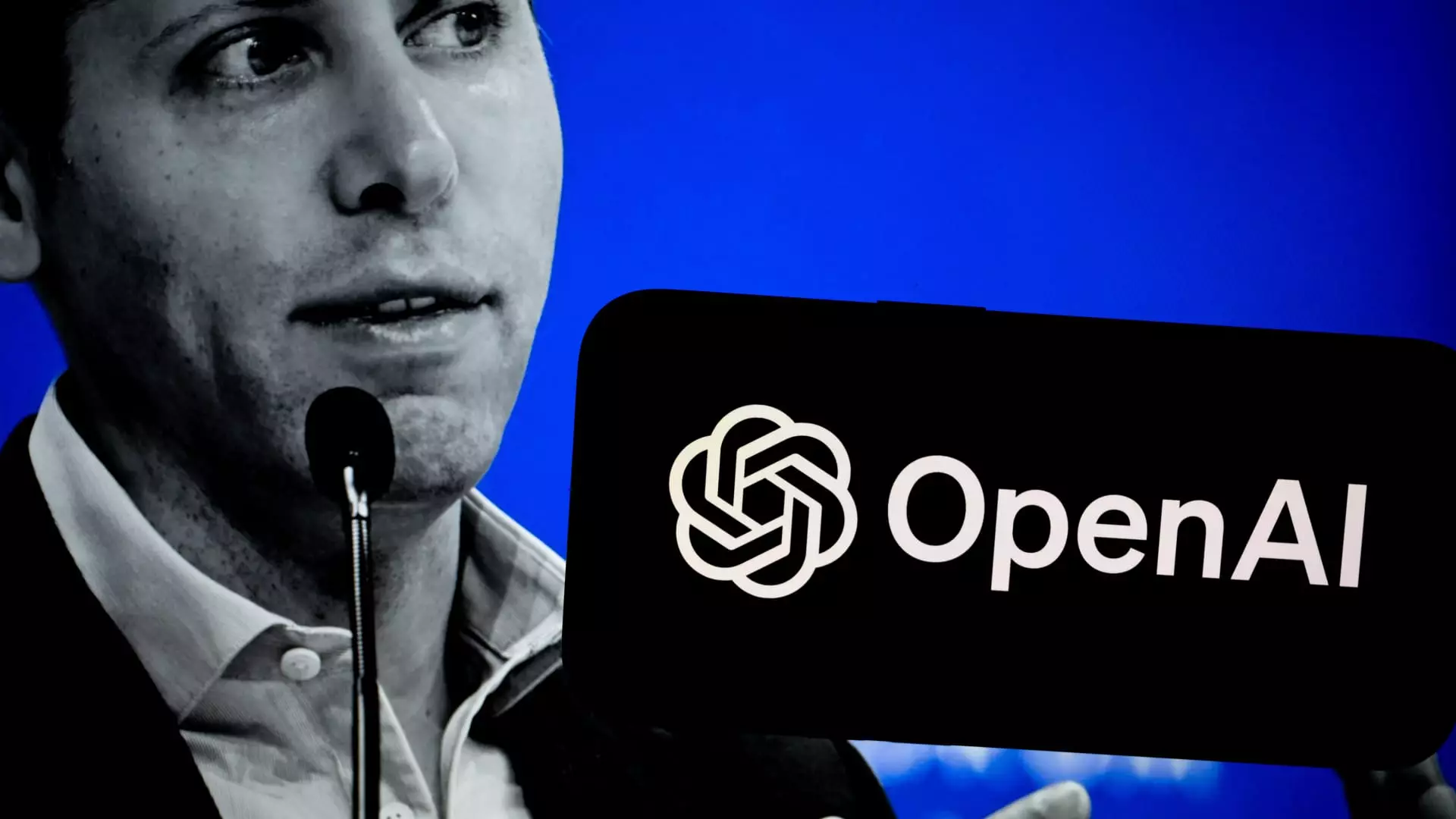OpenAI has been at the forefront of artificial intelligence innovation, particularly since the explosive popularity of ChatGPT in late 2022. However, recent developments within the organization suggest a state of uncertainty and transition. On Thursday, a major all-hands meeting revealed significant discussions surrounding CEO Sam Altman’s potential equity stake in the company—a topic fraught with speculation and concern among investors and employees.
During the all-hands meeting, Altman directly addressed rumors about his ownership stake in OpenAI. “There are no current plans here,” he stated, firmly dismissing the idea that he would receive a large equity stake. This denial was communicated to employees by a source who wished to remain anonymous, emphasizing the sensitive nature of the meeting. Altman’s remarks came in the context of rising concerns among investors regarding his lack of an equity share in the ambitious enterprise he co-founded almost a decade ago.
Following Altman’s statement, Sarah Friar, the company’s finance chief, echoed similar sentiments, which further reiterated that although the board discussed the potential merits of equity compensation for Altman, no concrete plans or figures have been laid out. Bret Taylor, the chairman of OpenAI’s board, also confirmed these discussions, noting that the focus remains on the company’s mission rather than specific compensatory adjustments.
The all-hands meeting coincided with broader conversations regarding a potential restructuring of OpenAI towards a for-profit model. If this shift takes place, the nonprofit branch would remain a separate entity. Behind the scenes, such changes suggest a re-evaluation of how the organization functions and generates revenue amidst a backdrop of heightened competition and demand in the AI sector.
However, alongside these significant discussions, OpenAI is faced with an unsettling trend: key executives are departing. This wave of exits raises questions about the organization’s stability and direction. Just a day before the all-hands meeting, three leaders—including Chief Technology Officer Mira Murati—announced their resignation after long tenures with the company. Murati, in her exit memo, expressed a desire to explore new opportunities, indicating a shift not just in personnel, but in the culture of the company.
Altman addressed these departures during an interview at Italian Tech Week. He emphasized that the changes were unrelated to any potential restructuring, asserting that current leaders are merely transitioning into new phases of their careers. His remarks seemed intended to reassure employees and investors alike, attempting to mitigate fears surrounding instability at the company.
This is not the first time OpenAI has wrestled with leadership turbulence. Earlier this year, notable exits included co-founder Ilya Sutskever and safety leader Jan Leike, which, coupled with Murati’s more recent departure and John Schulman’s decision to join a competitor, adds to the narrative of a company grappling with its identity and leadership structure.
OpenAI’s financial ambitions remain robust. Reports suggest that the company aims to secure funding that values it at over $150 billion, with Thrive Capital leading a $1 billion investment round. Such monetary pursuits signal the intense competition in the AI industry, where rapid growth can occasionally overshadow operational safety and ethical considerations.
Indeed, despite its meteoric rise, OpenAI is not without controversy. Concerns persist among employees and stakeholders about the implications of its swift expansion and the safety measures in place to handle complex AI technologies. Altman’s prior ousting last November, although temporary, underscored the precarious nature of leadership and governance structures within the company. It also emphasizes how critical trust and cohesive management are in an organization poised for transformative growth.
As OpenAI navigates these challenges, the paths forward for both its leadership and organizational structure will be crucial. The idea of compensating Altman with equity may not be a panacea for the company’s leadership dilemmas, but it does reflect a deeper, more pressing need for cross-communication and aligned interests among its executives and investors.
Ultimately, the coming months will be pivotal for OpenAI as it seeks to balance its ambitious goals with the realities of leadership transitions and the operational stability that employees and investors alike yearn for. The dialogues around equity, restructuring, and executive departures point to a company at a crossroads—one that must navigate the intricacies of growth while remaining committed to its foundational mission in AI.


Leave a Reply